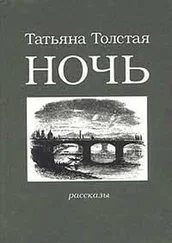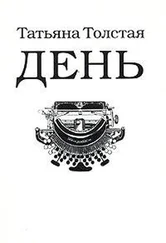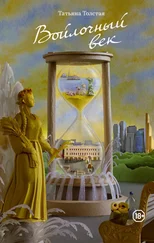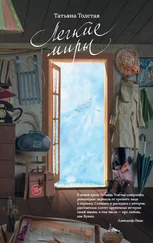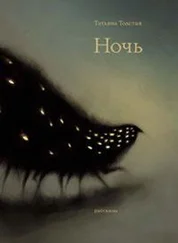Fedor Kuzmitch must have come from a clan of Titans that populated the earth even before the appearance of man. He was a dazzling resident of the mythological Golden Age, close but not equal, of course, to Dmitriev Junior the Demiurge, who created our world according to his personal whim and who saw that it was good. Blind aoidoi in dusty and loud markets, in the shade of reed canopies, sang about the twelve labors of Fedor Kuzmitch; for a small price, cunning entrepreneurs showed the bluffs where Fedor Kuzmitch’s cyclopean bed-sized feet stomped, and the vertical wall, overgrown with ivy, that Fedor Kuzmitch poked with his staff to create a spring of sweet water. Here Fedor Kuzmitch healed a quadriplegic, and over there is where he overcame the Minotaur. A rainbow in the sky, a thundering explosion on an invisible shooting range, twin trees on a faraway, unreachable shore—all these were the tracks of Fedor Kuzmitch that lingered long in this world, until the Golden Age ended. I blinked and missed how that happened and he was replaced with Krinda and Splat.
Ivan told me, in a sad telephone voice, that he remembers clearly: after Fedor Kuzmitch were Krinda and Splat. Yes, he was five, and Olga was six.
Thus shrink generations, thus decline the tsars, thus great kingdoms meet their demise as the sands bury the Sphinx to her breast. Where temples once towered, all that remains are white column shafts, and they are beset with scarlet poppies come springtime.
§
Our sister Katerina had three children, and, being the eldest and by her own lights the most conscientious of us all, she decided to make things easier for Mom, and at the house in general, at least for a month. We were already sleeping there in layers and eating in shifts. She found a young nanny named Tosya, a sixteen-year-old girl with a tapirlike nose and the resulting nasal habits of speech. It was easy to see that she was an unreliable and dopey sort, but Katerina was fond of brave social experiments and firmly believed—against all common sense—in the equality of all living beings. She bought train tickets to Feodosia: the end goal for all of us was always Koktebel, its essential value being not just the beach and the sea, but its sacredness. Our grandfather was friends with Maximilian Voloshin in the days of yore when this famous poet’s house was still the only one on the deserted beach; the distant silhouette of the bluffs at the water’s edge back then still resembled his profile perfectly. Father was friends with Voloshin’s widow, and whenever he came to visit, she’d set up a bed for him and Mama in the studio. He later told me that this is where I was conceived, under the visage of the Egyptian princess Taïakh—her yellowish head blindly and mysteriously looking into the distance, her enigmatic features revealing nothing. It must have smelled of wormwood that day; all the grass had already dried out. Invisible cicadas clipped the hot air with tiny shears. August was under way; the waves beat ceaselessly against the empty beach.
Three generations had already visited this house, and Katerina was on her way with the fourth. Mother was a little worried; she was waiting for a telegram to find out how the journey went. On the third day after Katerina’s departure, one of us went to the outhouse but found it occupied. It was still occupied ten minutes later, then twenty. We did a quick roll call—everyone was accounted for. After waiting a little while longer, we went out there to yank on the door, which was locked from the inside. Father pulled the handle strongly and broke into Curly’s handiwork. Inside, white as a sheet from fear and desperation, was Tosya the nanny.
“What happened? Where is Katya?” exclaimed my parents.
Tosya was silent.
“Where is Katya? Where are the kids? What happened?!”
The nanny could only shake her head. She was pulled out and taken back to the house, given hot tea. Fearing the worst, we pressed her, demanding: What happened? What?
Finally she unclenched her jaw.
“Flw ld ff trn.”
“What?!”
“Flw ld ff trn.”
More tea, more alarmed exclamations, crazy thoughts, near-coronary panic. (Father: “Ooooh, I can’t take this anymore, I demand to know what happened!” Mother, as always, cool as a cucumber.) Finally the vowels returned to the young lady, and, barely moving her tongue, she got the words out:
“Fellow lead off train.”
Lead whom off? Lead where? At this very moment a telegram arrived. The post office lady was apprehensive about walking through the gate, since our dog Yassa was full of hatred toward all government employees: postmen, land inspectors, soldiers—basically anyone who came for official reasons and wearing boots; Father dragged the angry dog from the gate and frantically grabbed the telegram. Katerina wrote: “Nanny ran off with a Georgian comma everything OK comma fruit galore full stop.”
Later, piecing together the mosaic of information, it came to light that shortly after Kaluga, but before the air turns sweet, southern, and languid; before the ladies selling baked potatoes and sour pickles become ladies offering sunflower seeds and hot corn on the cob through the open train windows, marriage grifters are already hard at work. The gorgeous Georgian “fellow,” twisting his sable brows above his intensely piercing eyes, performed a well-rehearsed routine of sudden passion, allegedly inflamed by the short-legged and long-nosed Tosya, promising her love till death did them part and giving her a pair of lacquered heels as proof. “Come with me, and even death won’t separate us.” Tosya ran to Katerina: in a rickety old train car, between the boiler with metallic-tasting hot water and the WC with rattling hinges, gear-locking mechanism number 3, and such, a Love was born. That’s exactly how love comes. “Please let me go!” Katerina tried to stop her: “Do not fall for men’s cunning tricks!” But the young lady was head over heels in love, and in tears, a state that did wonders for her looks; so Katerina, who gave her blessing to all emotions, let her go.
After that, everything happened fast, too fast, and according to the script: the Georgian sat Tosya down in the Bryansk train station waiting room, taking all her money and the lacquered heels as well; he needed to buy tickets to his native Sukhumi. “Wait here.” She waited until nightfall before accepting that this was it. The end. It’s unclear why she came back to our dacha, how she made it there with no money, and why she locked herself, cowering in fear, in our outhouse.
We talked about her for a long time after that: How would she live in this world, being so naive. How do such people survive?
How does anyone survive?
§
It’s easy to enter the past: just keep looking straight ahead and walking. There will be no fences, no locks, the doors will open by themselves to let you in. Flowers won’t wilt, berries will know no season, apples won’t fall from tall-as-pines apple trees but will reach the ledge where the heavens part and turn into stars and grapes. Here is old man Dobroklonsky, an art historian, taking his four dachshunds out for a walk. He also lives in the White House—he must have moved in after us, because I can see him only from our side of the fence; we can no longer go for walks and play ball on the enormous field with its bald spot in the middle, but he can; he’s bending over, unclasping the leashes so his frail, bowlegged dachshunds can run every which way in the grass. One of them, with cloudy cataracts in her bluish old eyes, hobbles my way to yap from across the wire fence. Yassa, locked inside the house, is worn out from indignation, she bangs her paws on the window, her bark hoarse: How dare they??? How dare they???
Читать дальше


